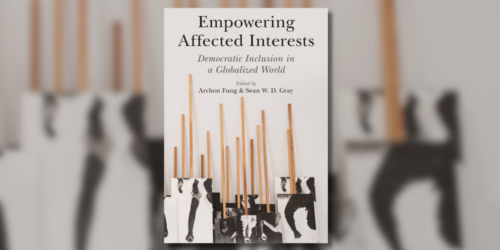
Podcast
Terms of Engagement—How Does Our Civil Rights History Shape the Future of American Democracy?
Archon Fung and Stephen Richer invite Harvard Kennedy School Professor and civil rights advocate Cornell William Brooks to assess the evolution of America’s historical narrative and what implications history has on our contemporary political context.




